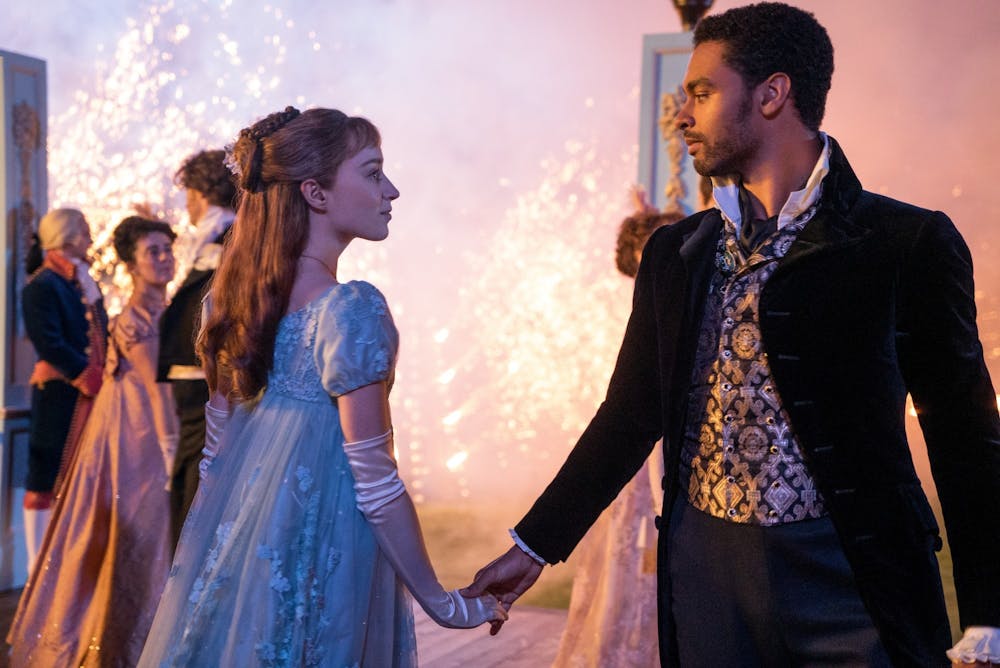Content warning: this column contains descriptions of sexual violence.
Move over, Jane Austen, there’s a new period drama in town. People of all ages have fallen in love with Netflix’s “Bridgerton”, making it Netflix’s fifth largest original series debut of all time.
The eight episode long series, based off of Julia Quinn’s novel, “The Duke and I,” is set in 1813 London. The show tackles issues such as race, feminism, sex education and consent through a contemporary lens.
Some of these issues were handled appropriately and with care. Bridgerton took topics such as unplanned pregnancy and sexuality and did a wonderful job at comparing it with how sex education was approached in 19th-century London.
Teen Vogue writer Zainab Onuh-Yahaya felt this storyline was highly familiar, and applauded “Bridgerton” for its, “shockingly relatable sex education storyline that hit way too close to home.”
Another topic integral to the storyline is race. One of the “Bridgerton” creators, Chris Van Dusen, has spoken about its casting approach, and he told the Los Angeles Times that the efforts in casting were color-conscious, not “colorblind.” However, what the showrunners failed to include in that process was perhaps the most important part: being conscious of the impact of a character’s race.
In color conscious casting, one must be aware of the implications a character’s race has on the story, especially when the actor playing that character comes from a historically marginalized group. Audiences have picked up on this issue, so the show’s approach to race has been very divisive. Some have criticized the show for casting white actors in the primary speaking roles, generally ignoring race in the show and not granting Black characters any actual development.
Where the significance of this casting choice had the most detrimental effect was in the controversial sex scene between characters Daphne and Simon, the Duke. This scene depicted non-consensual impregnation after the audience finds out Simon had been lying about his infertility. This is an integral moment that the writers of the show failed to acknowledge the racial implications of.
Simon is never shown support for what had just happened to him. It felt as though Simon’s assault was used as a prop for Daphne’s journey rather than it being a pivotal moment in his own journey. Simon was more villainized in the show for lying to Daphne about his fertility than Daphne was for sexually assaulting her husband.
Despite “Bridgerton”’s efforts in making the show a diverse version of history, the historical influence of an interracial relationship is tricky. If “Bridgerton” wanted to responsibly take on a relationship like this, and take on the responsibility of telling a much needed story of Black love and Black joy, it should have been handled with better care and attention.
At the very least, the show serves as a valuable avenue for people to continue having conversations about the intersections between race and film and race and sex.






